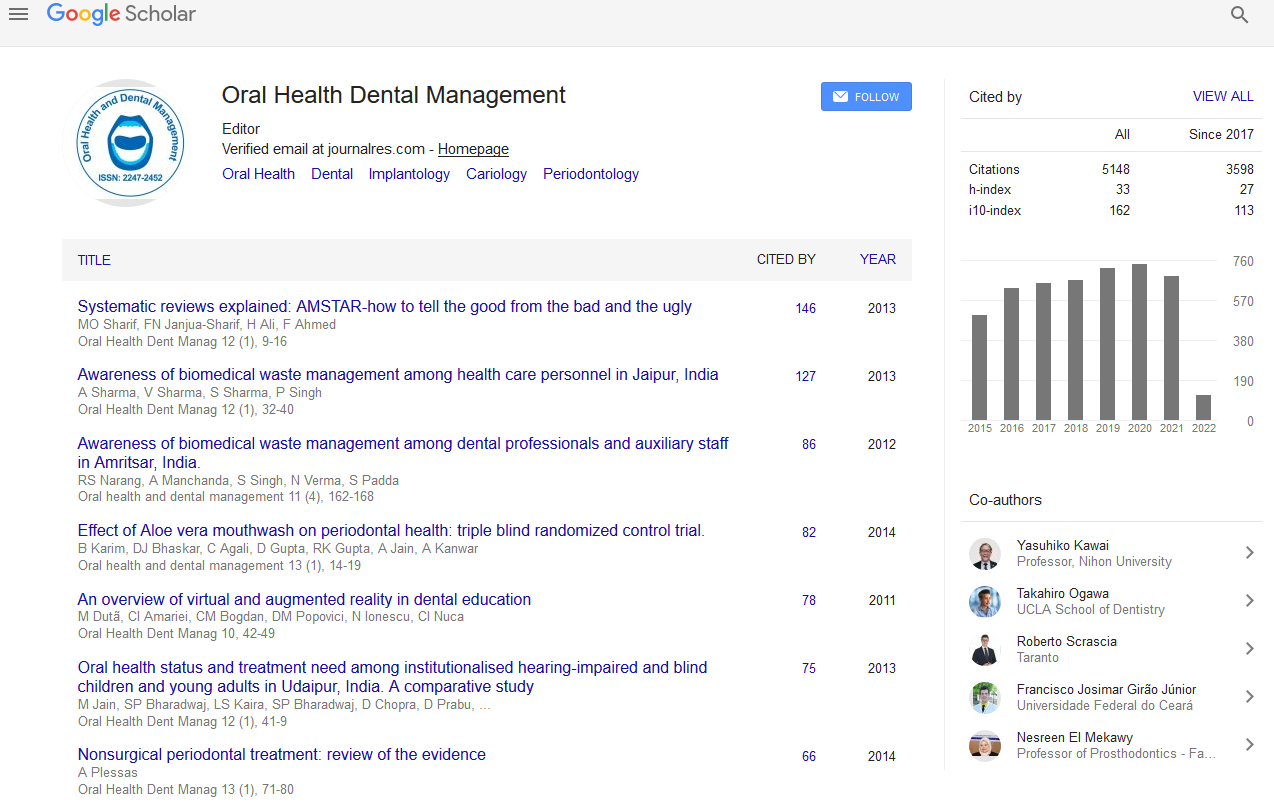Indexed In
- The Global Impact Factor (GIF)
- CiteFactor
- Electronic Journals Library
- RefSeek
- Hamdard University
- EBSCO A-Z
- Virtual Library of Biology (vifabio)
- International committee of medical journals editors (ICMJE)
- Google Scholar
Useful Links
Share This Page
Journal Flyer

Open Access Journals
- Agri and Aquaculture
- Biochemistry
- Bioinformatics & Systems Biology
- Business & Management
- Chemistry
- Clinical Sciences
- Engineering
- Food & Nutrition
- General Science
- Genetics & Molecular Biology
- Immunology & Microbiology
- Medical Sciences
- Neuroscience & Psychology
- Nursing & Health Care
- Pharmaceutical Sciences
Abstract
European Association of Dental Public Health Meeting 2011
To evaluate the social impact of oral disorders in patients addicted to alcohol or other substances. Methods: As a first phase in a longitudinal study, 400 waiting list patients of the Jellinek/Arkin Centre for Special Care Dentistry in Amsterdam were asked for their consent to complete a mailed questionnaire that included the short form of the Oral Health Impact Profile (OHIP-14). Data were collected as a routine part of Jellinek medical procedures that have been subjected to ethical review. Mean scores were calculated for the seven subscales of the OHIP-14 as well as a summary score. The summary score ranges from 0 (no impact) to 56 (extreme impact); subscale scores range from 0-8. Repeated measurements analysis of variance (ANOVA) was performed in order to compare subscale means. Results: 110 questionnaires were eligible for analysis (response rate 27%); 92 (84%) of respondents were male; mean age was 48 (8); these results did not differ significantly from those in the non-respondents. Mean (standard deviation) OHIP- 14 summary score was 26 (13). Mean subscale scores were: functional limitation 4.7 (2.3), physical discomfort 6.6 (2.0), psychological discomfort marked variation in uptake for both screening and fluoride varnish application by school and dental team. Conclusion: A dental preventive programme was delivered in schools by general dental practitioners. Variation in uptake was thought to be due to a number of factors including a complex consent process, lack of clarity of information for parents, alcohol in the varnish, lack of school champions and complexities of general dental practitioners working in schools. Work is underway to address these in the second year of the programme.

